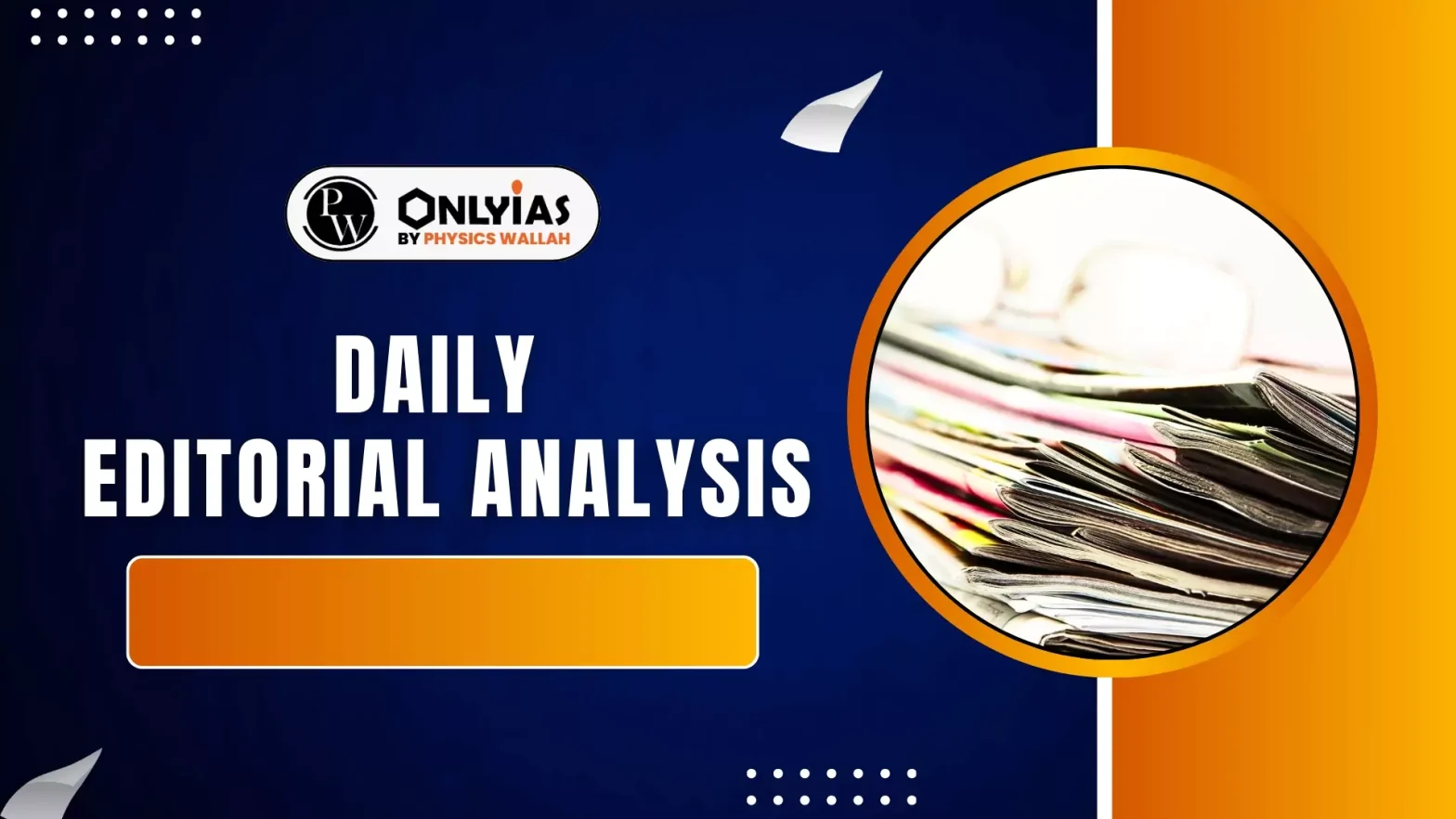The international climate negotiations, held under the UN Framework Convention on Climate Change (UNFCCC), have been facing a credibility crisis in recent years
About UNFCCC
- UNFCCC was adopted at the Rio Earth Summit in 1992 .
- It came into force in 1994.
- It is a non-binding framework agreement, setting out general obligations.
- It does not impose penalties or enforceable emission reduction targets.
- UNFCCC is based on the principle of Common But Differentiated Responsibilities (CBDR) under Article 3.
- CBDR recognizes that all countries share responsibility for climate action, but developed nations must take the lead due to their historical emissions and greater capabilities.
Challenges Faced By UNFCCC
- Responsibilities of Developed Countries: Developed countries, largely responsible for historical environmental damage due to the Industrial Revolution etc, are not adequately bearing their responsibilities.
- They consistently fail to meet financial commitments made to developing countries.
- The current commitment of 300 billion dollars annually from 2035 onwards is drastically short of the assessed need of at least 1.3 trillion dollars per year for developing countries’ climate actions.
- Developing and Vulnerable Nations: Developing countries, particularly small island nations and vulnerable populations, are the primary sufferers of climate-induced disasters despite being economically weaker.
- Non-Participation of Major Economic Powers: Example: The withdrawal of the United States from these negotiations, following the return of Donald Trump to the White House this year, has threatened to make the entire process irrelevant.
- Ineffective Decision-Making Mechanism: The UNFCCC works through consensus, which means no decision is accepted till every country accepts it.
- This effectively grants a veto power to every country, making it nearly impossible to achieve ambitious or radical changes.
- Complexity of Issues: Climate change issues are becoming increasingly complex, involving multifaceted factors beyond just temperature rise, such as the consequences of development activities like deforestation on natural disasters.
- Procedural Inefficiencies: Discussions are plagued by overlapping and redundant agenda items, and there are restrictions on speaking time and the size of negotiating teams, hindering meaningful dialogue.
- Influence of Vested Interests: The selection of COP host countries with economies largely dependent on fossil fuels, such as Dubai and Baku, and the significant participation of fossil fuel companies, raises concerns about their influence on decision-making, potentially hindering radical climate action.
- Gap in Implementation and Monitoring: While decisions are made, their proper implementation and monitoring are often lacking, indicating a need for a dedicated body to ensure execution.
Proposed Reforms to Strengthen the UNFCCC Process
- Majority-Based Decision Making: A move from consensus-based decision-making to a majority-based system is crucial.
- This would enable decisions to be made more effectively, preventing a single country from blocking critical climate action.
- Marginalize Non-Complying Actors: Countries with a poor track record of climate action and companies from fossil fuel industries, which often influence outcomes, should have their participation or influence limited or removed from the negotiation process.
- Streamline Agenda and Discussions: Overlapping and redundant agenda items must be eliminated to focus negotiations on core, impactful issues. Allowing sufficient time for each country to present its views is also vital.
- Ensure Climate Finance and Technology Transfer: Developed countries must be pressed to fully deliver on their financial commitments, including the 100 billion dollar annual target, and significantly increase contributions to adaptation finance.
- Additionally, technology transfer for clean energy to developing nations is essential for equitable progress.
- Mainstream Climate Conversations: Climate-related issues should be made a central theme across all United Nations agencies and international financial institutions like the World Bank, International Monetary Fund, and Asian Development Bank.
- Promote Leadership and Engagement: As the host of the COP30, Brazil has to take leadership in ensuring its success.
- In a recent letter to all the parties, Brazil acknowledged the need for reforms, and asked them to “consider” the future of the UNFCCC process.
- Brazil has also drawn up a list of 30 items on which it would work with other countries to accelerate climate actions.
- The BRICS group has also asked developed countries to fully deliver on their finance commitments under the UNFCCC and the Paris Agreement, while increasing their contribution to adaptation finance.
Conclusion
The UNFCCC process stands at a critical juncture. Implementing these reforms is paramount to restoring its credibility, accelerating global climate action, and ensuring climate justice for all nations.
![]() 14 Jul 2025
14 Jul 2025

